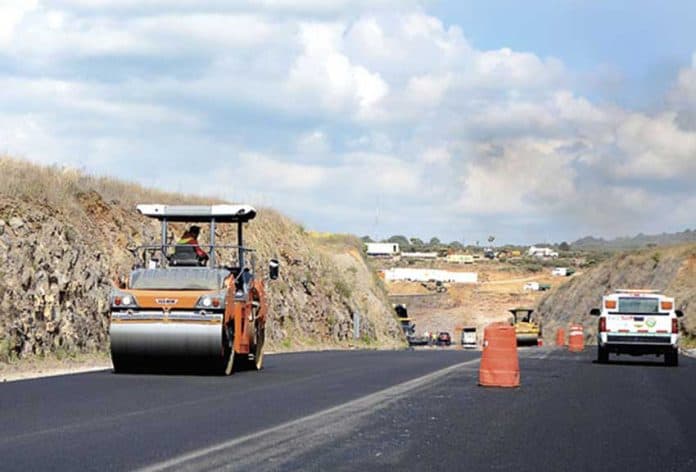The Durango-Mazatlán highway was not only costly to build but is now proving to be costly to maintain as well.
The federal government has spent almost 2.5 billion pesos (US $132.7 million) to maintain the highway since it opened in October 2013, public records show.
The 230-kilometer-road, described as the largest public works project in the history of Mexican highways, cost 28 billion pesos (US $1.5 billion at today’s exchange rate) to build, an amount that exceeded the original budget by almost 20 billion pesos.
But it wasn’t long before the highway was beset with problems including landslides, potholes, blocked tunnels and quickly-deteriorating asphalt, all of which contributed to frequent closures.
In the almost five years since the highway opened, the government has been forced to pay out 2.46 billion pesos to carry out repairs, inspections, studies, grading and other work.
Diódoro Ramírez, a Durango builder and member of the Mexican Chamber of the Construction Industry (CMIC), told the newspaper El Universal that the highway is reflective of a common phenomenon in infrastructure projects across the country: budget blowouts.
Among the biggest costs detected by El Universal through a review of the federal government’s transparency portal and documents provided following freedom of information requests was the expenditure of 890 million pesos (US $47 million) for one contract signed in 2014 and another four in 2016.
All five contracts were for “road surface rehabilitation” and paid for by the Secretariat of Communications and Transportation (SCT) and the Federal Highways and Bridges Agency (Capufe).
Between 2014 and 2017, the federal government also spent 383.5 million pesos (US $20.2 million) on seven contracts for work including the filling of potholes, highway re-leveling and the laying of new asphalt.
But according to Ramírez, the problems the repair work was supposed to address still remain.
“It wasn’t an investment, the money was thrown away,” he said.
“There are many structural problems on the road’s surface. They are correcting and correcting [the road] and hundreds of millions of pesos later, it’s still not fixed,” Ramírez added.
CMIC Durango president Miguel Reveles said that a lot of the road’s problems are in his state, which is higher and wetter than neighboring Sinaloa.
He added that two of the highway’s signature structures — El Sinaloense tunnel and El Baluarte bridge — have both had problems mainly due to water run-off from adjacent embankments. The latter partially collapsed in 2016.
Reveles said that 75% to 80% of the road’s problems are related to drainage issues and the failure to opportunely deal with excess run-off.
Records show that the federal government has also spent 92.2 million pesos (US $4.9 million) on 11 contracts for inspections and evaluations of structures including tunnels and bridges and the road’s surface.
The highway, which cuts travel time between the two cities from six hours to around two and a half, was built by Omega Corp. in partnership with Grupo Aldesa.
The latter company also built the Cuernavaca Paso Express, on which a sinkhole appeared in July last year just three months after it opened, trapping a car and killing both occupants. In that case, too, poor drainage was blamed. An old culvert that should have been replaced was unable to keep up with the volume of run-off.
Source: El Universal (sp)
